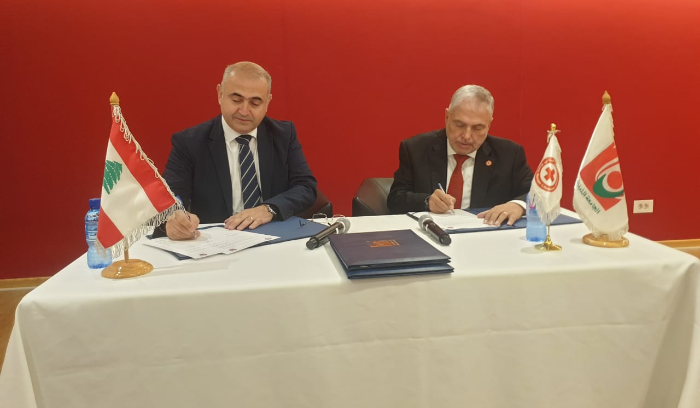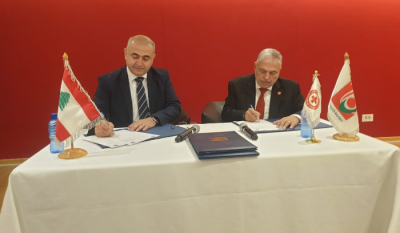The President of the Lebanese University, Bassam Badran, confirmed during the signing of a cooperation agreement with the President of the Lebanese Red Cross, Antoine Zogheib, at the central administration building in Museum, that "the agreement with the Lebanese Red Cross is the result of mutual meetings and visits, knowing that the cooperation between our two institutions has existed for a long time, whether through the Youth Club affiliated with the Red Cross within the university community in Hadath or the first aid courses that are organized regularly in some faculties, as well as the support of first aid teams during activities and gatherings that take place at the university, especially during the COVID-19 pandemic." He stated, "Three institutions bear the vibrant name of Lebanon, striving to turn weakness into strength to protect Lebanon and the Lebanese from ignorance, disease, or danger; they are the Lebanese University, the Lebanese Red Cross, and the Lebanese Army.. These are institutions across the nation, for the nation.. Thus, I extend my admiration to these three institutions that protect Lebanon from all harm."
Badran noted that "the Lebanese University, which has been ranked by global ranking institutions such as (QS) as the first in Lebanon regarding the professional reputation of its graduates and the second in academic reputation, competes with the most esteemed universities in Europe, America, and the world. It will remain, like the cedars of this nation, standing tall against the fiercest storms, thanks to the sacrifices of its professors, employees, and students who shine creatively in spreading knowledge and science."
He clarified that "today's agreement is a general framework agreement that expresses the desire of both parties for joint work, but we look forward to expanding the areas of cooperation and common grounds through communication and regular meetings, whereby the university will provide its scientific, academic, and youth potentials to support the Red Cross according to its needs in the broad fields of cooperation, and each faculty has its unique areas of intersection and collaboration." He expressed hope that the Lebanese Red Cross would "be more present in the university through its various departments and social, health, and humanitarian activities, and develop the frameworks of cooperation with different faculties to serve both parties' goals and needs."




